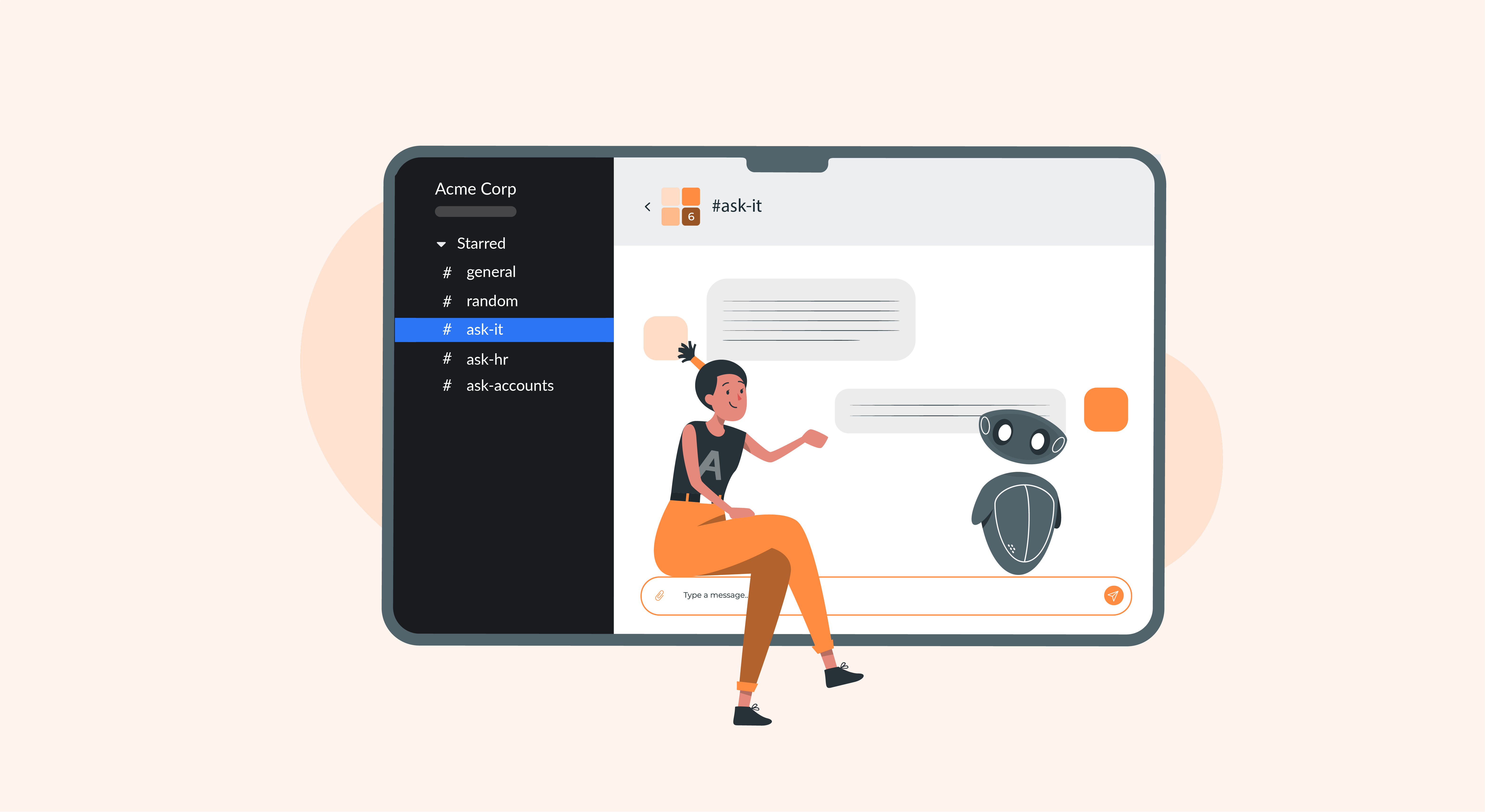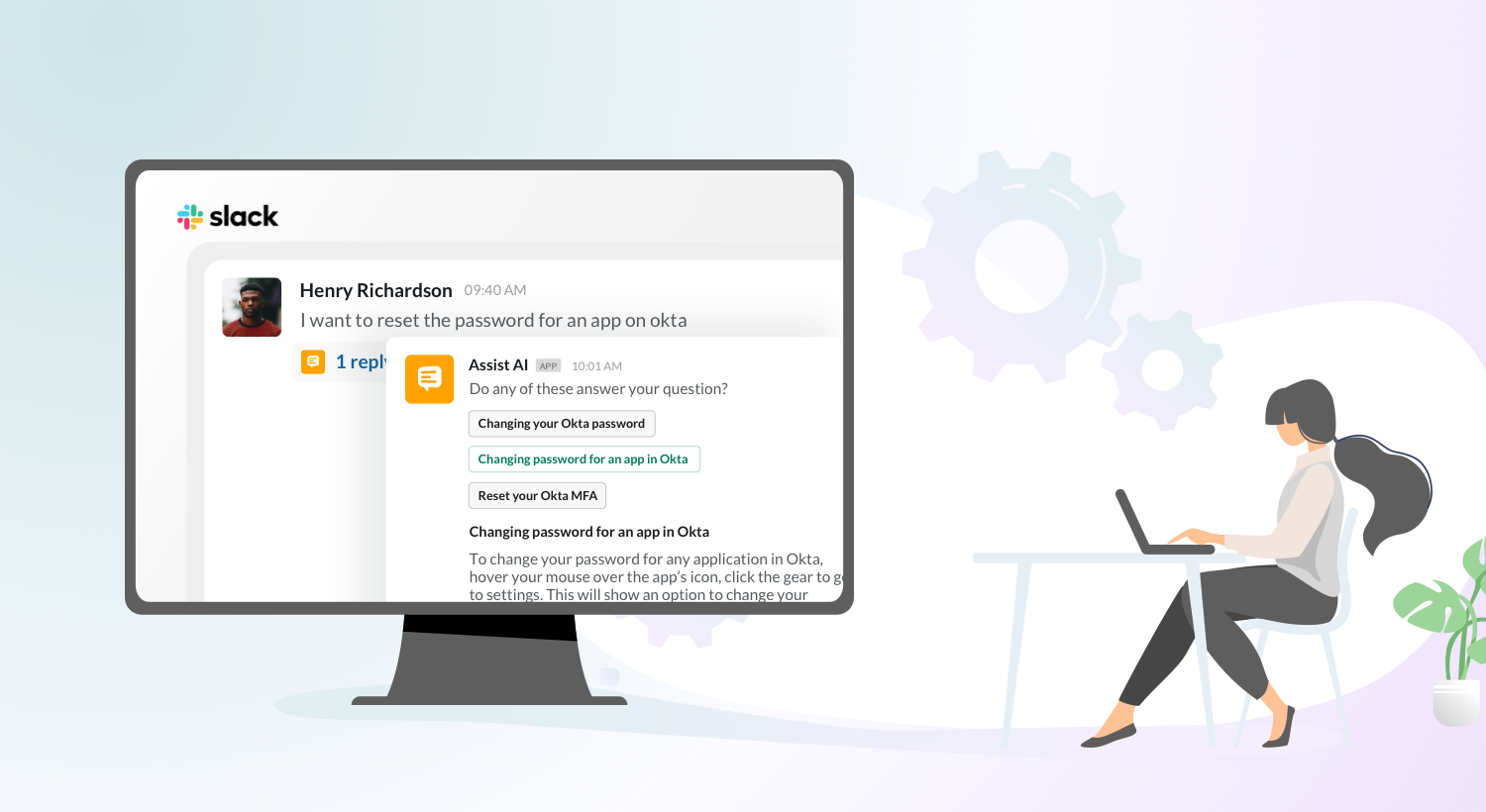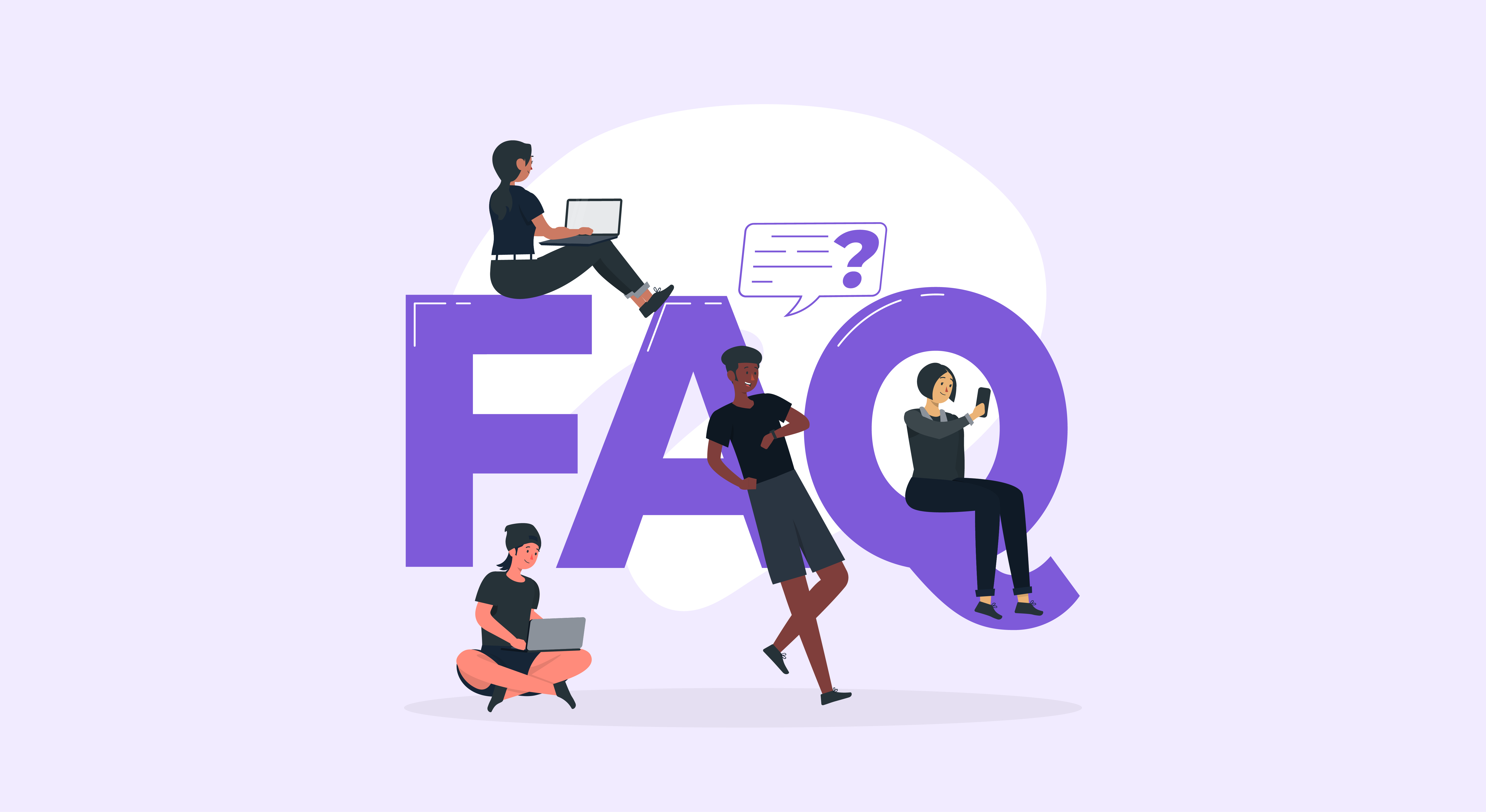With an ever-changing technology landscape, businesses today thrive on IT products and services for the functioning and management of business processes. More use of technology calls for more maintenance and support. And ironically, yet another piece of technology can ensure great IT Support.
What is IT Support?
IT Support refers to providing assistance or troubleshooting issues related to computer systems, software, cloud services, network, infrastructure, etc. The IT Support team focuses on fixing immediate IT problems and implementing preventative measures against future IT issues.
Whether you are a large enterprise looking to empower your IT team or an SME (Small and Medium Enterprise) with an internal setup to resolve IT issues and improve efficiency, this blog is for you. We cover how IT Support is evolving from traditional emails to messaging channels to automated support using AI in this post.
The Current State of IT Support
IT Vendors/ Managed IT Services Provider
Traditionally companies hired IT Vendors who had to be contacted when there was a hardware or software issue in the systems. But with limited field persons, increasing resolution times, and the lack of timely support, companies now have a dedicated internal team to address common IT support needs.
Help Desk and ITSM Service desks
Many enterprises use IT products (ERP/CRMs) like Oracle’s E-Business Suite (EBS), Microsoft Dynamics, etc., to keep track of purchases and sales. And who customizes these IT products to suit the needs of enterprise companies? That’s where IT Services provided by companies like Infosys, Wipro, Cognizant, etc., jump in. These companies use ITIL-compliant service desks to support clients and ensure ITIL-compliant support. Other SMEs use Help Desks to support the employees with internal IT needs. The underlying technology being emails.
Post-Pandemic Changes
COVID-19 brought IT Support to the forefront as businesses worldwide switched to remote workforces, digital workflows, and innovation to meet the needs of a new market. IT departments everywhere deployed technologies to maintain business continuity during the global crisis.
Did you know?
According to a report conducted after Covid-19, 36% of the companies across North America and Europe plan to improve IT operations & systems performance.
Emerging Technologies for IT Support
IT is no longer a cog in the wheel. It is, in fact, the backbone of any business. A business strategy is incomplete without its IT strategy.
Companies are looking to invest in technologies like AI, Machine Learning, and self-service to efficiently handle IT Support and reduce cost. These technologies are not standalone pieces. Instead, they are elements of a bigger solution, bringing new capabilities that enhance the existing platform’s (like help desk’s) overall functionality and value.
Chatbots
IT queries are repetitive and can create an unnecessary burden to the support team. Chat is an easy and intuitive medium to ask as well as provide answers to repetitive questions. A chatbot can respond proactively to messages containing specific words or phrases with a predefined response. Due to the ease of installation and use, chatbots are getting widely adopted for IT support.
Chatbots cannot maintain threads like a conversational system, so only one issue can be handled at any point in time.
Messaging Channels
With enormous technology shifts happening in the workplace, messaging channels like Slack and Microsoft Teams have replaced emails for resolving employee internal issues. Messaging channels are the hub of communication, where plans are hatched, and work gets done. Using the same channel for IT Support ensures less back and forth and less formal conversations.
The problem with ad-hoc messaging channels like Slack and Microsoft Teams is process compliance. Ad-hoc IT support leads both support agents and end-users to get bogged down with scattered message threads, undocumented approvals, and potential mistakes that can’t be traced back.
Self-Service
A significant part of the IT Support team’s job is to continuously trace common issues and continuously create a repository of answers. Knowledge base and help centers are a great way to cultivate a self-serve culture amongst the employees.
However, Self-service portals are difficult to create and maintain. Traditional long pieces of text in KB articles are difficult to skim through due to outdated content.
Learn more about the challenges in incorporating self-service into your IT Support Process.
Smart Help Desks
AI can be integrated into a help desk, making it a “Smart” Help Desk. Think of all the manual tasks that support reps have to do at the help desk, like categorizing tickets based on the issue, sentiment analysis, assignment of tickets, etc. When you have AI to read, automatically categorize the tickets, and assign them to a specific support rep, you really know your help desk is smart.
Adding AI to the help desk requires huge customization to the system itself. Companies are now using AI-ready help desks, which might incur high costs.
All of the above emerging technologies can power your IT Support, but the future of IT Support will need all of these technologies woven together. What IT Support Teams need is Conversational Ticketing.
Conversational Ticketing – The Future of IT Support
What is Conversational Ticketing?
Conversational ticketing is a form of real-time AI support within messaging apps where communication happens in everyday language. With Self-Learning powered by AI, it gives the IT Support team the power to automate routine ticket resolution. It also ensures tracking customer support threads to ensure process compliance.
Imagine two of your company employees have a video call, and there is an issue with the connection. One employee emails the IT support team, and the other hits a slack message. Who do you think would get a speedy response?
Of course, the one with the slack message.
Even better, what if there is a prompt response to your query powered by AI on slack? You are sure to show confidence on Slack for asking queries next time. Isn’t it?
That’s what Conversational Support does.
Conversational ticketing brings Messaging apps + Bots + Help desk into the same field.
Want to See conversational ticketing in Action?
Enter HappyFox Assist AI – an AI-powered self-service and Conversational Ticketing solution for Slack and Microsoft Teams. The creative below shows how Assist AI works to provide speedy support by bringing in the best of ticketing systems, knowledge base, and chatbot within messaging channels (Slack and Microsoft Teams).

Benefits of Conversational Ticketing
Conversational ticketing aims to reduce the IT support team’s workload through automation and continuous learning with AI. More importantly, it gives the convenience of handling issues right within messaging apps. It also eliminates the problem of process compliance that ad-hoc messaging comes with. It is a piece of technology that can prepare IT Support for a bright future; let’s find out how:
1. Speed
The first response time to internal IT tickets takes an average of 24.2 hours.
Companies that are vigilant have found a direct correlation between faster IT support and an increase in business productivity. Hence there is the utmost need for a speedy and convenient IT Support process.
Conversational ticketing tool boosts speed since AI is often able to dig up solutions faster than a human can. Additionally, employees don’t have to switch between apps to report an issue, and agents don’t have to juggle between apps and create support tickets with merely an emoji.
2. Automation
You’re either the one that creates the automation or you’re getting automated
Just having a rule-based bot or a predefined flow is not automation in real terms. Conversational Ticketing is a part of the Conversational AI universe that combines Natural Language Processing to understand the queries’ intent and provides answers intelligently. It learns like a human agent, thereby reducing the workload of humans.
To progress and give support agents more time to address complex queries, it is important that self-service and automation supplement the support process. Conversational ticketing makes this possible. If you are not automating your IT Support, you will fall behind.
3. Personalized Customer Experiences
Good service is good business
The more the tools support teams handle, the more the mess, especially in IT Support, where our own colleagues resolve issues. A solution like Assist AI – a conversational ticketing platform makes it easier to interact in everyday language.
Instead of end-users and support agents wasting time over email to handle support requests, they can stay on their preferred communication platform and resolve common issues quickly and efficiently.
4. Constantly Evolving
Business is constantly changing, constantly evolving
One of the biggest benefits of Conversational ticketing is that it learns and adapts from every feedback and user conversation. This makes it ready to triage future issues as the new terminology and processes get added.
Conclusion
IT Support – a field that companies sidelined has now become a cornerstone for employee and business success. Businesses looking to grow should update their IT strategies for true improvement. The future of IT Support is clearly technology-driven.
This post covered the current state of IT Support and how it is moving towards Conversational Ticketing adding a new dimension to use team messaging channels for IT Support.
If you are looking for a solution to improve IT Support, we’re here to help you with HappyFox Help desk and Assist AI. Book a demo with our product experts to know more.








